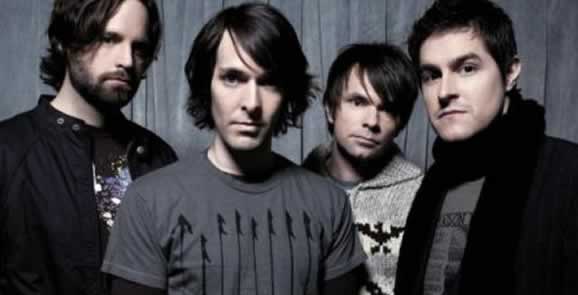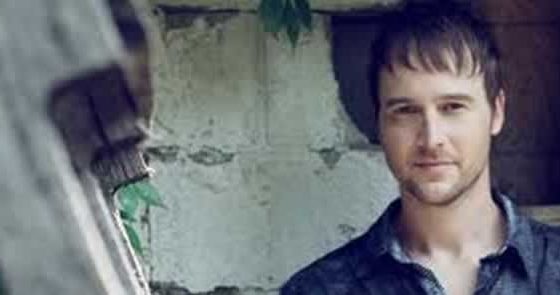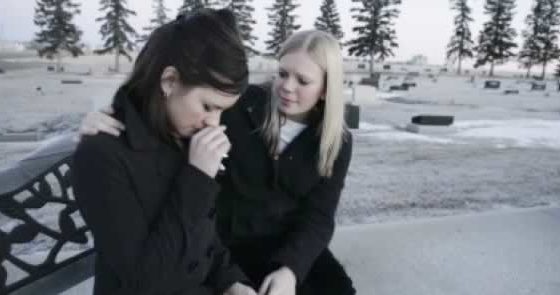When Jars of Clay released its self-titled debut 11 years ago, the rock world took notice. In fact, more than two million people around the globe eventually bought the album. During the decade that followed, many casual observers assumed Jars of Clay’s first record remained its best, while the band’s more attentive fans knew otherwise. Come September 5, both casual observers and fans alike will be in for a surprise. That’s the day Good Monsters (Essential) will be unleashed on an unsuspecting public.
Monsters. Funerals. Suffering. Unresolved rants. Critiques and confessions. Sound like the feel-good album of the year? And yet, with Good Monsters, Jars of Clay has crafted one of the most emotionally uplifting and emancipating albums in recent memory. The fact that its 12 songs so deftly explore intimately personal issues, that any finger-pointing involves a mirror and that the songs are so well constructed, performed and just plain catchy make this a record that bears repeated listening.
“It feels like we wrote this record more for ourselves than our audience,” says Jars of Clay keyboardist Charlie Lowell, “in the hope that, if the song gets me and the band really excited, it’s going to resonate with people around our age that are thinking about similar things or trying to live in similar ways.”
Jars of Clay’s 2005 hymns record, Redemption Songs, and its subsequent tour saw the emergence of several things that have profoundly affected the band and the resulting new album. Jars brought frequent collaborator Ashley Cleveland on the road with them. Cleveland’s willingness to experiment musically and her assumptions of the band’s creative dynamic challenged them to take risks that had heretofore been omitted from their creative process.
As the band gathers this July morning in Nettwerk Management’s Nashville office, Jars of Clay guitarist Steve Mason recalls, “There was this song that she wanted to do. She invited us to play on it. And we kind of fumbled through it once, and she said, ?Well, why don’t we do it tonight?’ And we were like, ?Well, uh, we haven’t really played it a lot, you know.’ Ashley helped us understand our abilities. We can lean on that stuff and not be as fearful that we wouldn’t play it perfectly.”
Cleveland remarks on the band’s time-tested abilities: “The organic way they come together as musicians and artists is unique. They can afford to be looser because there’s such a symbiosis about the way they play together — that unspoken way a true band communicates.”
Adds Mason’s fellow guitar player Matt Odmark, “It was interesting having her perspective, which is, ?Here’s this band that’s played together for 13 years; they should be able to do anything.’ And it was cool to have someone pushing us in that direction.”
That attitude soon produced some of the liveliest concert performances of the band’s history, with Mason stretching his playing more than ever and Haseltine embracing the role of front man with newfound vigor. As the band reeled through songs such as “God Will Lift Up Your Head” and “I’ll Fly Away,” Haseltine stalked every inch of the stage and engaged crowds with authority, all the while stretching his vocal range and dynamics.
That the “Redemption Songs Tour” extended far beyond anyone’s expectations allowed the band to push themselves further and further and bring a less encumbered group to record Good Monsters with a dedication to remain unedited, both musically and lyrically, and capture an immediate emotion.
That immediacy is felt throughout Good Monsters. The self-producing band cut the bulk of the record together in one room, with Haseltine often turning in a song’s definitive vocal on what was intended to be a scratch track. The album is the most assured recording Jars of Clay has ever made. Explains Haseltine, “We really cared more about the urgency and having a performance that was more reflective of a live setting. So we played everything together. There’s something about the power of performing live that we had never captured on an album before.”
Simultaneous to that experience was the band members’ growing discomfort with their perceived role as spokesmen that didn’t match up with their personal spiritual processes. “I think we’ve been a band that either by self-appointment or circumstance had to be kind of the voice of the Christian community,” says Haseltine. “After enough of that, you start to feel like that’s how you have to write because you’re forced into that perspective, and you have to give a context for every statement you make. For every lyric, there has to be a sort of biblical mandate. What I’ve come to realize is that that’s not how I live my life; it’s not how any of these guys live their lives. We wrestle with stuff. We make mistakes. I make mistakes. When we’re only writing songs that can provide a context, an argument for something, we aren’t really sharing those moments.”
“We are trying to bring the full weight and authority of the gospel to the music,” declares Mason. “There’s a tendency to condense the scriptures, and especially what David said, to just take Psalm 119, [and condense it to] a few highlights. But man, there was some serious?blues. Some serious darkness going on that he was accessing. But, for being a man after God’s own heart, he asked a lot of what would be considered by today’s standards ?insensitive’ questions of God. I think that the gospel’s a much more frightening implication if we believe it until death — that He truly will raise us from the dead. There are far-reaching implications that we barely access and we barely allow ourselves to access.”
Those feelings reflect big-time themes of the most intimate personal struggles: self-awareness; the desire to be known; complicity in injustices both personal and global; and having the faith to ask God not just hard questions but harsh ones as well. The striking second verse of “Dead Man (Carry Me)” offers a glimpse into these themes: “I woke up from a dream about an empty funeral/But it was better than the party full of people I don’t really know.”
Says Haseltine, “I went to a funeral, and I sat there; and it was an amazing event because person after person got up and described this person that had died, and you could tell they really knew him. And at that moment, I had this kind of crisis. ?Who knows me? Who would get up at my funeral and say those things for me?’ I don’t know, and I couldn’t find anyone. And I went to the people who were close to me?and my perspective is kind of skewed because I have a sense that people know me less than they actually do. My own family, a lot of times, I’ll be surprised what they know about me. But, for the most part, I have the sense that I’ve lived a very protected life; and I recognize that there’s folly in that and some emptiness in that. So especially that lyric was just one way to say, ?I don’t know which is better — not having anybody show up at my funeral or having a lot of people that don’t know me at all.'”
Copyright © 2006 CCM Magazine, Used by Permission
Like what you’re reading?
Get the full scoop by subscribing to CCM today! Click Here











